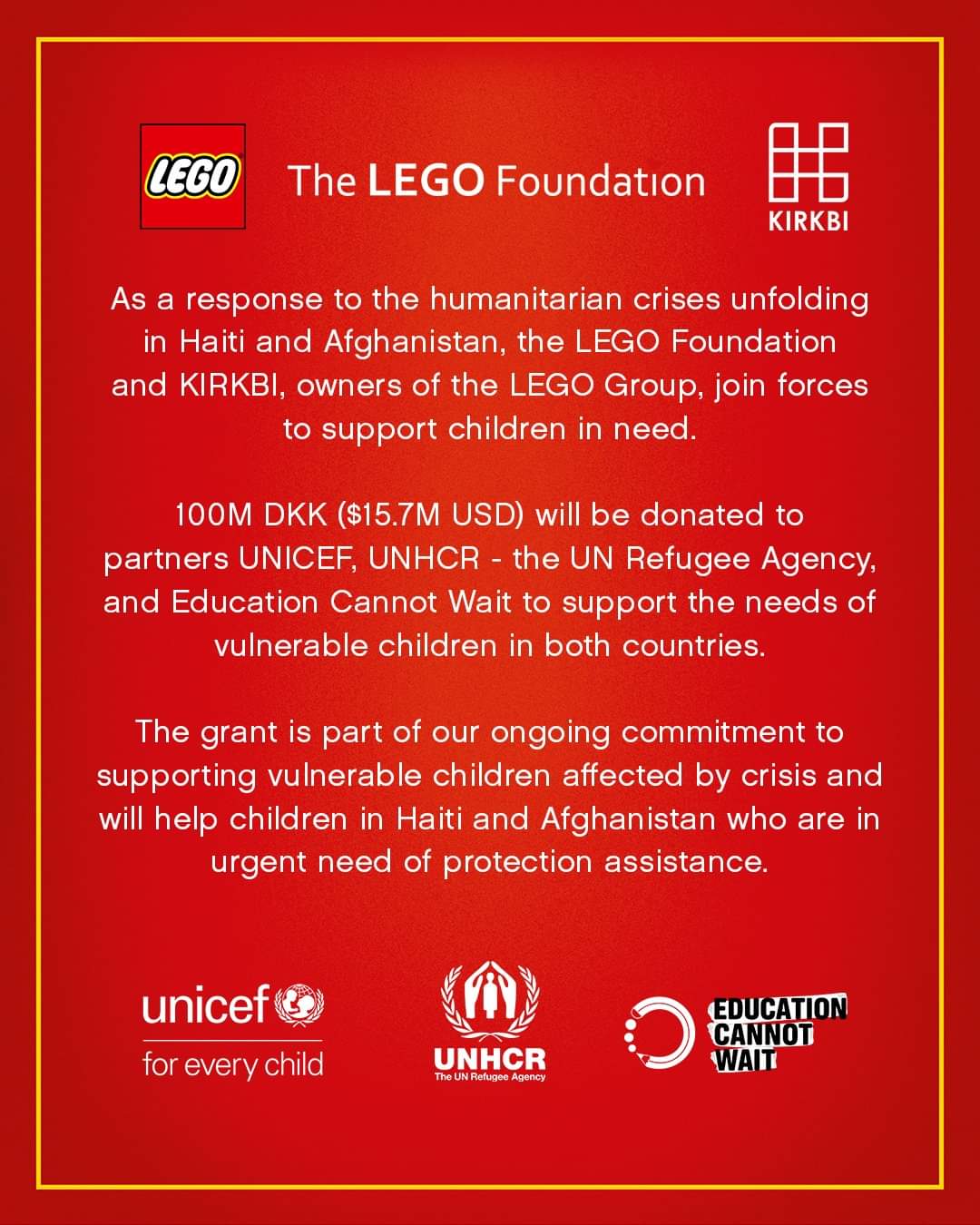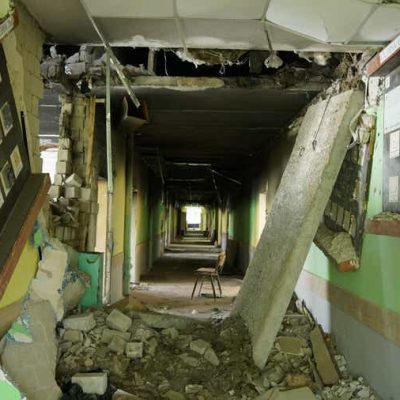The LEGO Group has, over the Years, provided countless support measures with the latest collaborative effort between The LEGO Foundation and KIRKBI.
LEGO have announced a huge new grant in the form of £11.5M to help and support vulnerable Children in Haiti and Afghanistan.
For the full lowdown please see the official statement below.

Official statement:
The LEGO Foundation and KIRKBI announce 100MDKK grant to support vulnerable children in Haiti and Afghanistan
Billund, Denmark, 26 August 2021: The LEGO Foundation and KIRKBI, the owners of the LEGO Group, today announced a new 100M Danish Kroner (DKK) grant (equivalent to $15.7M USD or £11.5M GBP) to support vulnerable children in Haiti and Afghanistan with partners including UNICEF, the UN Refugee Agency (UNHCR), and Education Cannot Wait (ECW).
30M DKK will go to UNHCR, 20M DKK will go to UNICEF; and 35M DKK to ECW. 15M DKK will be distributed in due course, as the needs of the emergencies unfold.
“The humanitarian crises that are happening in Haiti and Afghanistan are unimaginable and only intensified by the COVID-19 pandemic. Both require a response that focuses attention on the immediate and long-term impacts”, said Thomas Kirk Kristiansen, Chair of the Governing Board, The LEGO Foundation, and 4thgeneration representative of the LEGO owner family. “KIRKBI and the LEGO Foundation, as the owners of the LEGO Group, have an immense opportunity to respond to the crises. With the grant, we hope to take a targeted approach to support the needs of the people of Haiti and Afghanistan – not least the children who are in a urgent need of protection assistance.”
Before the current political crisis, almost half the population of Afghanistan – 18.4 million people (8.2 million children) – were in need of humanitarian and protection assistance. Since May 2021, over 500,000 people have been displaced, and the rights of women, families and children are gravely endangered. According to the National Statistics and Information Authority (NSIA), Afghanistan has one of the youngest and fastest growing populations in the world, with 46% of the population (11.7 million children) under 15 years old. Those who have fled the crisis require immediate and ongoing support, especially families and young children.
“These grants are an important part of our ongoing commitment to supporting children affected by crises. We know that by giving attention to young children and their continued access to learning in crisis settings, especially their early stimulation needs, we can make a big positive difference to them immediately and in the long-term. Together, we hope to provide more children with access to early childhood and education services needed to develop skills such as critical thinking, creativity, and problem solving. Social and emotional skills are vital for children to overcome the stressors caused by crisis situations, and to build resilience and adapt to the needs of the rapidly changing world,” said John Goodwin, CEO, The LEGO Foundation.
The 7.2 magnitude earthquake that struck Haiti on August 14th, followed by Tropical Storm Grace, has left half-a-million Haitian children with limited or no access to shelter, safe water, healthcare, and nutrition. With COVID-19 still an imminent threat to the health and safety of Haiti’s population, the loss and damage associated with these most recent natural disasters only further compounds the dire situation so many children and families are experiencing.
“As a global fund dedicated to education in emergencies, our First Emergency Response is one of impatience. Education cannot wait until the emergency is over. Thanks to the rapid support by the LEGO Foundation we can now establish safe learning spaces for children, and provide mental health and psychological social support without delay,” said Yasmine Sherif, Director, Education Cannot Wait. “Early Childhood Education needs are central to our response, alongside other components of quality education. In Afghanistan, this additional funding will enable us to continue implementing community-based education to target the most vulnerable children, with an emphasis on girls.”
What is your reaction?
 YES!
YES!
 I like it
I like it
 It's OK
It's OK
 Not Sure
Not Sure
 No!
No!







